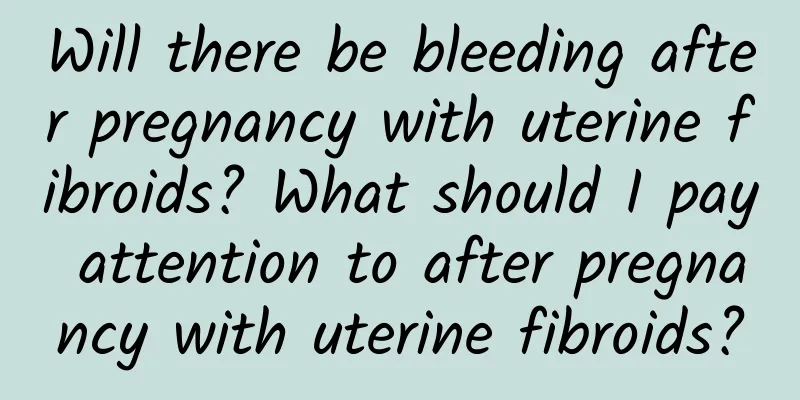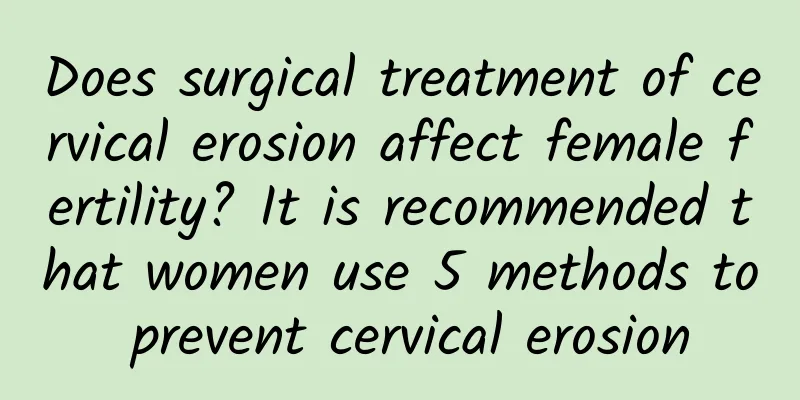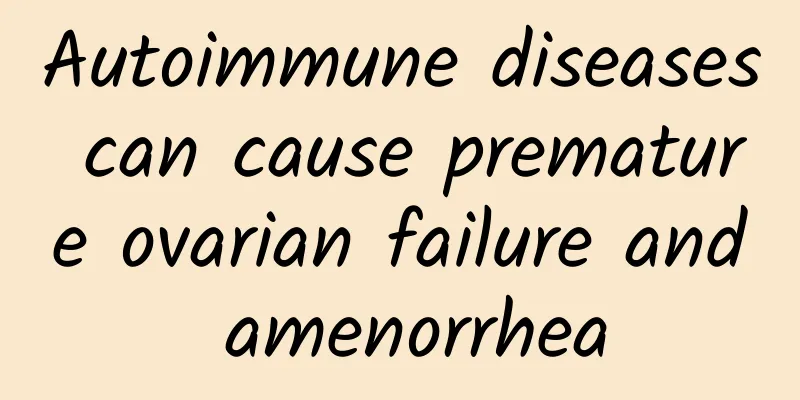What is the cause of ovulation bleeding during puberty?

|
Ovulation bleeding during adolescence is usually caused by hormone fluctuations that cause partial shedding of the endometrium. It is a normal physiological phenomenon and there is no need to worry too much. If the amount of bleeding is small and there is no other discomfort, it can be relieved by adjusting your work and rest, diet and emotional management; if the amount of bleeding is large or accompanied by pain, you need to see a doctor in time to rule out other diseases. 1. Hormone fluctuations are the main cause of ovulation bleeding in adolescence. The levels of estrogen and progesterone in adolescent women are not yet stable. Hormone fluctuations during ovulation may cause partial shedding of the endometrium, causing a small amount of bleeding. This bleeding usually lasts 1-2 days, with a small amount and no other discomfort, and is a normal physiological phenomenon. 2. Bad living habits may aggravate ovulation bleeding. Staying up late, high stress, irregular diet and other factors can affect the endocrine system, leading to hormone disorders and increasing the risk of bleeding. It is recommended to maintain a regular schedule, avoid excessive fatigue, and reduce stress, which will help relieve symptoms. 3. Dietary adjustment can help improve ovulation bleeding. Eating more foods rich in vitamin C, E and iron, such as oranges, spinach, lean meat, etc., can help enhance blood vessel elasticity and reduce bleeding. Avoid spicy and greasy foods to reduce stimulation to the endometrium. 4. Emotional management is crucial to relieve ovulation bleeding. Negative emotions such as anxiety and tension can affect hormone secretion and aggravate bleeding symptoms. It is recommended to relax the body and mind through yoga, meditation, etc. to maintain emotional stability. 5. If the amount of bleeding is large or accompanied by abdominal pain, dizziness and other symptoms, you need to seek medical attention in time. The doctor will rule out diseases such as endometriosis and uterine fibroids through B-ultrasound and hormone level testing, and prescribe drugs or other treatments according to the situation. In most cases, ovulation bleeding during adolescence is a normal phenomenon, so there is no need to be overly nervous, but you need to pay attention to the bleeding and seek medical attention if necessary. Symptoms can be effectively relieved by adjusting lifestyle habits, diet and emotional management. If bleeding is abnormal or accompanied by other discomforts, you should seek professional medical help in time to eliminate potential disease risks. |
<<: Is bleeding from uterine fibroids dangerous?
>>: Can I still get pregnant after having a uterine cyst removed?
Recommend
How contagious is cervical warts?
Nowadays, people want to know how cervical warts ...
For obese people who want to control their weight, “enjoying thinness” is not a dream! 5 must-eat leptin foods for weight loss
Why do some people never gain weight no matter ho...
What are the dangers of bacterial vaginosis?
Bacterial vaginosis causes sexual disharmony. Aft...
What to drink to treat uterine fibroids? What to drink to help uterine fibroids?
What to drink to treat uterine fibroids? What to ...
Chinese medicine treatment of amenorrhea due to qi stagnation, blood stasis and phlegm-dampness stagnation
The causes of amenorrhea are complicated and are ...
Causes of irregular menstruation
Irregular menstruation is a manifestation of the ...
Improve your metabolism! Asparagus is great for weight loss
Asparagus is native to southern Europe and is a n...
What are the symptoms of mild cervical erosion? If there are 3 symptoms, it may be mild cervical erosion
There are three symptoms of mild cervical erosion...
What tests can detect Bartholinitis?
There are many factors that trigger Bartholinitis...
What are the tests for miscarriage?
Is the examination before abortion really necessa...
How many days does it usually take to have an abortion?
In women's daily life, if you don't take ...
To reduce the risk of diabetes and cardiovascular disease, nutritionists recommend: low-fat, low-sugar, low-sodium healthy meal boxes
People who often eat out for three meals a day ar...
How long does it take to get your period after taking medicine to induce abortion? What should I do if my period is irregular after taking medicine to induce abortion?
Menstruation will come about one month after taki...
Will pelvic effusion make you sleep poorly?
Pelvic effusion is rarely caused by pelvic absces...
Does endometrial tuberculosis require oral medication?
Clinically, the incidence of endometrial tubercul...









